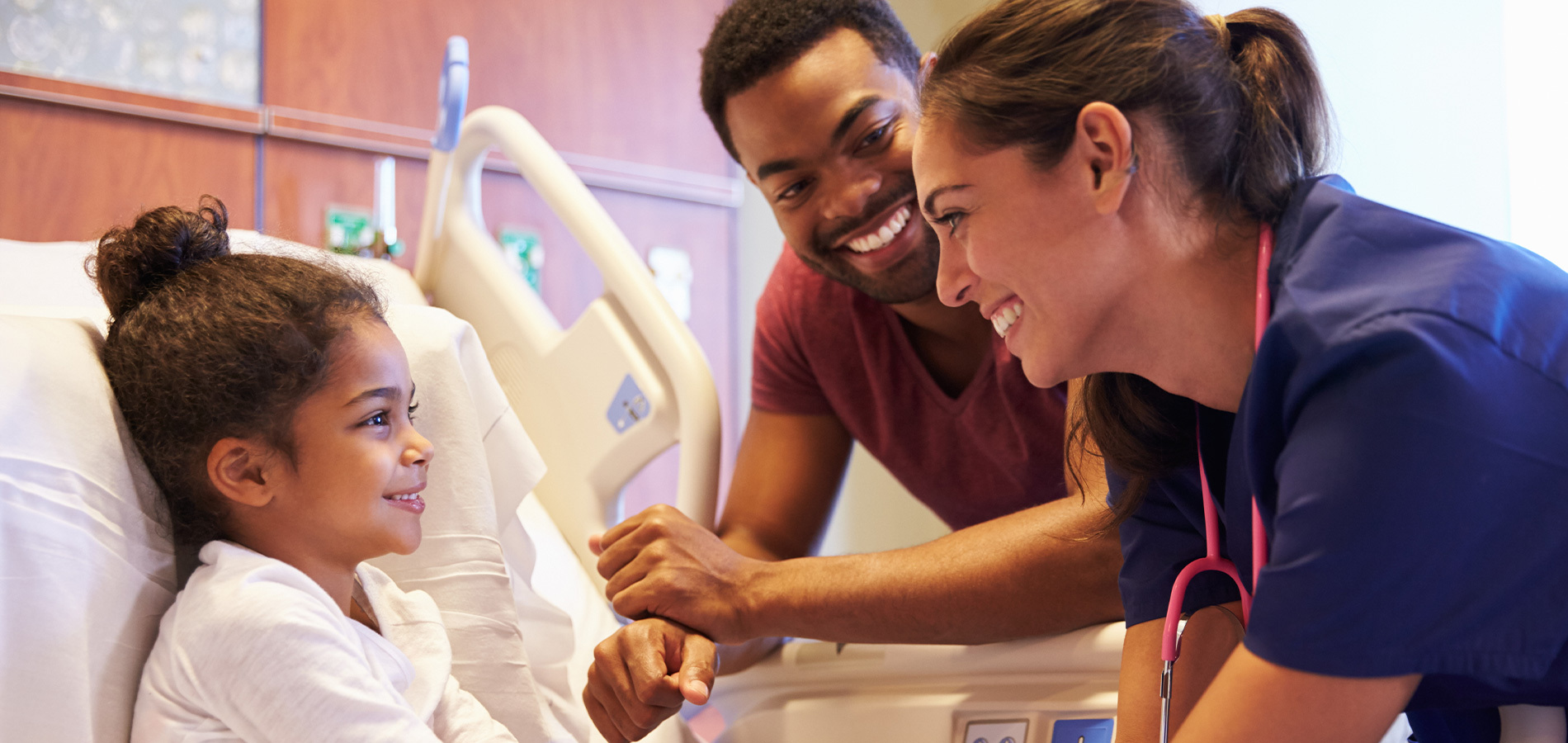A Nurse’s Guide to Effective Communication with Patients’ Families

Nurses enjoy a fulfilling profession, but one in which they face many challenging situations. No patient, after all, really wants to be in the hospital, and the family members who come and go have a lot on their minds. At the same time, nurses are providing care for a high number of patients, filling out numerous charts and files and managing the needs and questions of lots of people.
The systemic complexity of modern medicine can create a whirl of activity that leaves patients struggling to remember all that they’re told. Sometimes, families feel overwhelmed, and this can lead to challenges in communication between patients and medical staff. Fortunately, creating positive, helpful communication among nurses, patients, and their families can be key, both to a nurse’s satisfaction on the job and to a patient’s overall experience in the hospital.
How to Communicate Effectively with Patients’ Families
Stay HIPAA Compliant
The Health Insurance Portability and Accountability Act (HIPAA) protects each patient’s privacy and access to medical information. Part of effective nurse-patient communication lies in trust. Patients and their families need to know they can trust hospital nurses to abide by the laws governing the protection of their medical information.
Listen with Empathy
Listening to patients and their family members can go a long way toward building good communication habits. Nurses should always try to engage in empathetic listening, a type of active listening that focuses on the emotional responses of the other person. Empathetic listening doesn’t have to take a lot of time, but it does require concentrated effort and engagement to do well.
Belinda Bauman, the founder of One Million Thumbprints, described three components of empathetic listening. The first is pre-listening, which involves paying attention to where the conversation happens. Are the physical and emotional environments conducive to listening well? The second component is assuming the posture and tone of the speaker. In that way, the listener shows they are reading the whole person, not just the words said. The final piece of empathetic listening is becoming vulnerable to the feelings the speaker is communicating.
Consider More Than Your Words
Psychologist Albert Mehrabian’s seminal study on the impact of body language found that 93% of the takeaway from a conversation comes from non-verbal communication. Specifically, he noted, “Words account for 7%, tone of voice accounts for 38%, and body language accounts for 55%” of how we feel about the person talking. Body language is the strongest element of communication. Consider using regular eye contact, reassuring nods and smiles to help maintain a positive relationship with patients and their families.
Value Families’ Expertise
Family members may not have medical expertise, but they are experts on the person receiving care. They may be better able to interpret a patient’s level of pain, discomfort or interest. They also know important background information that could affect procedural or medicinal choices. When nurses encourage families to speak up and ask questions, those families feel valued and respected.
Engage the Family as Care Partners
When a nurse asks for help, it can greatly elevate a family’s sense of involvement in the patient’s care. This model of partnered care is growing in acceptance among medical professionals. “We include parents in clinical rounds not because we believe in patient-centered care, but because we believe in great care, and we can’t deliver great care if the person who knows the patient best isn’t in the room,” according to Mark Helfaer, MD, Chief of Critical Care at Children’s Hospital of Philadelphia.
Many hospitals now are working the family members as care partners by placing them on key committees, permitting family members to call for rapid response, and training staff members on how to listen better to family members. You can learn about this trend and other emerging topics in healthcare, as well as enhance your nursing skills, by earning an RN to BSN online. These online programs are designed with working nurses in mind so you can balance your education with your busy life.
The online RN to BSN program from Bethel University focuses on treating patients in a holistic way that touches the body, mind, and spirit. The program is about providing meaningful care that promotes the health of people from diverse families, communities, and systems.
If you already have your BSN, consider your MSN degree online. With this degree, you’ll be prepared to take on roles as a nurse leader in administration and education. The online MSN program at Bethel, which is accredited by the Accreditation Commission for Nursing Education, can be completed in two years and includes Nurse Administrator and Nurse Educator tracks, allowing you to specialize your education for your specific career goals.
